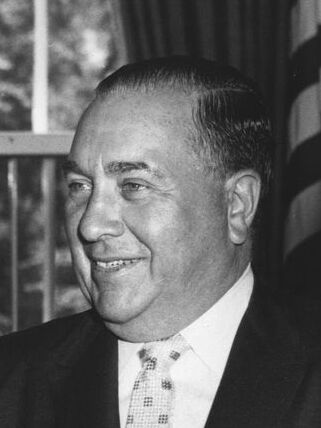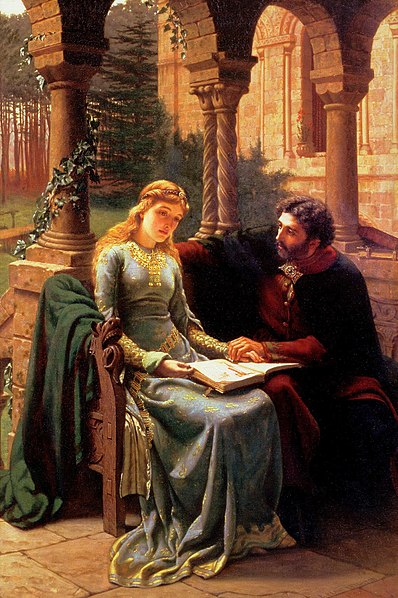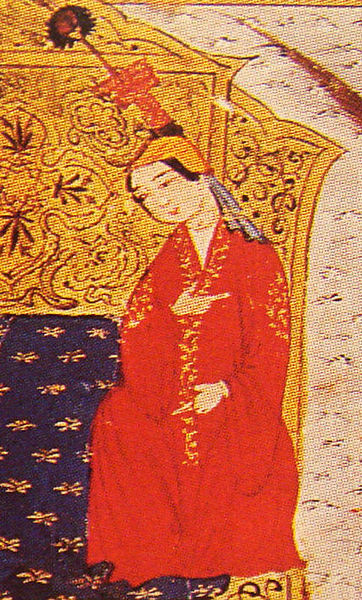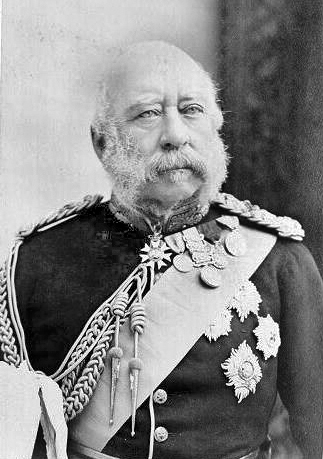
STILL THINKS HE’S A FAILURE
April 12, 1945
7:09 P.M.
The Cabinet Room of the White House
Washington, D.C.
Harry Truman was sworn in as the 33rd President of the United States today, after the death of President Roosevelt.
Congratulations poured in from all over the world.
He has big shoes to fill.
And one person believes he’s not up to the job.
That would be his mother-in-law.
She never thought he was good enough for her daughter Bess, and she still doesn’t.
She was heard muttering outside the White House:
“Sure, he’s the president, but he wasn’t elected president. And he may be commander-in-chief, but he never got above captain in the army.”
So, as a nation looks to the future with hopeful hearts, one woman will continue to look backward:
At the scrawny poor kid with no prospects, who “married up.”
Poor Harry can’t do anything right.
For some undisclosed reason, his mother-in-law wasn’t invited to the swearing-in ceremony.
But seriously…
October 31th, 2022
Harry Truman was the ultimate overachiever.
He didn’t seem to have much at all going for him.
He was physically unprepossessing. Small of stature (his father was only 5’4” tall), and timid looking.
His eyes were so bad he was turned down at West Point and Annapolis.
He was born poor, and lived in debt for much of his adult life.
He failed in his one business venture.
He didn’t own a house until after he retired.
And yet…
He was a successful artillery captain in World War One.
He was elected County Judge, and pushed through an ambitious roads and building program.
He was elected twice as United States Senator, his reelection a stunning upset.
He chaired a committee on military spending, saving the government millions on expenditures. This success got him noticed by President Roosevelt, who tapped him to be his next vice-president.
He took over for the president who was practically an icon.
He met with Churchill and Stalin as an equal, and wasn’t intimidated by either.
He won reelection as president, in another stunning upset.
And, he was the only man in history ever to authorize the use of nuclear weapons.
Still, after all this, he couldn’t impress his mother-in-law.
Madge
Truman claimed he never laughed at a mother-in-law joke.
If that’s true, he deserved a medal, because his wife’s mother was unmerciful in her disdain for him.
Madge Wallace was brought up in comparative luxury, one of the wealthy citizens of a small town.
She looked down on her future son-in-law immediately because of his modest background.
His status in her eyes didn’t improve when, after the marriage, the new couple moved in with mom.
Truman was a doting son-in-law, inviting Madge to live with his family in Washington before he was president, and then in the White House. She died there, shortly before the end of his second term. To the very end, as he took time out from his heavy duties to care for her, she maintained he couldn’t do anything right.
Tough Guy
Truman showed again and again that he was not a man to be trifled with.
When Tom Pendergast, the political boss of Kansas City, urged him to give construction contracts to his corrupt friends, Truman refused.
When construction unions building the Jackson County courthouse went on strike, Truman threatened to fire them.
When President Roosevelt tried to use Senator Truman for his own political ends, he was terse:
“I’ve got a message for the president. Tell him to stop treating me like an office boy.”
He stared down Stalin, fired MacArthur, and defied anyone who underestimated him.
So why didn’t he stand up to his mother-in-law?
The fact was, Madge’s dissatisfaction went deeper than Harry’s poverty.
She carried a terrible secret.
Early one June morning in 1903, Madge’s husband put a revolver to his head in the family bathroom.
The shame of the suicide caused Madge and her four children to move away for a year. Her oldest child, Elizabeth, known as Bess, was eighteen years old.
This may answer how Madge could remain disappointed in Harry even after he attained the presidency. Maybe it wasn’t really him she was disappointed in. What feelings of disappointment, regret, and anger did she hold toward her husband, that she wouldn’t allow herself to acknowledge?
We’ll never know. The matter was not talked about.
Truman’s daughter Margaret saw firsthand how Harry shielded Bess from any talk of the suicide. Margaret learned about the suicide at the age of twenty. When she told her father what she had heard:
“He seized my arm in a grip that he must have learned when he was wrestling calves and hogs around the farmyard.”
“Don’t you ever mention that to your mother,” he commanded.
It was the only time he ever spoke angrily at her.
Margaret never did bring up the subject with her mother.
Truman had to fire his Secretary of the Navy, James Forrestal, who was mentally unbalanced. After firing Forrestal, Truman sent him to Bethesda Naval Hospital to be looked after. At Bethesda, Forrestal tied one end of the sash from his bathrobe to a radiator and the other around his neck, and jumped from the sixteenth story window.
Bess was terribly shaken by this suicide. There was much finger-pointing in the press. No wonder Bess avoided reporters.
Out of the Shadow
Truman seemed to spend his adult life in someone’s shadow. First it was Tom Pendergast. Then it was Franklin Roosevelt. Even after becoming president, Truman was seen as filling out FDR’s fourth term.
So, in 1948, he had a chance to step out of Roosevelt’s shadow, and win the presidency for himself. But by 1948 the country had soured on Truman, and his bid for reelection looked hopeless. His challenger, Thomas Dewey, was widely expected to be the next president. His election was so sure, the Chicago Tribune printed the headline before the results were in: Dewey Defeats Truman.
When Truman won, he held up a copy of the Tribune, in what became one of the most famous photos of the time.
Truman had overcome the odds once more. He had been counted out, underestimated. But he had believed in himself, he had made his case, and he had prevailed. His supporters had also believed in him.
But not Madge Wallace.
She believed Dewey would win.
Standing Strong
Throughout his life, from amid the din of artillery shells in France, to the burden of debt, to the shouldering of presidential responsibility, to the decision to use nuclear weapons, Harry Truman stood strong. But nothing speaks more eloquently of his character than the fact that he never spoke an unkind word- serious or joking, explicit or implied- against Madge Wallace.
Instead, he was magnanimous in his accustomed simplicity.
Of his mother-in-law, he said plainly,
“She was a grand lady.”
Sources
The Accidental President, A. J. Baime
Harry S Truman, Margaret Truman
Truman, David McCullough





